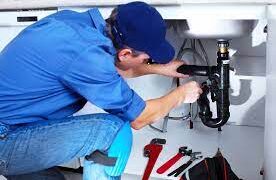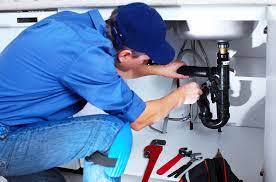Winter brings its own set of challenges, and plumbing emergencies can be among the most stressful. Freezing temperatures can wreak havoc on pipes, causing leaks, bursts, and other issues that disrupt your daily life. However, by taking some proactive measures, you can minimise the risks and handle unexpected situations effectively. Here’s how to prepare for emergency plumbing situations this winter.
1. Insulate Your Pipes
One of the leading causes of winter plumbing emergencies is frozen pipes. When water freezes, it expands, often leading to pipe bursts. To prevent this, insulate exposed pipes in unheated areas such as basements, attics, and garages. Use foam insulation sleeves or thermal tape to keep pipes warm. Don’t forget outdoor pipes and taps—disconnect garden hoses and use insulated covers on outdoor faucets.
2. Know the Location of Your Main Water Shut-Off Valve
In the event of a burst pipe, shutting off the water supply quickly can minimise damage. Familiarise yourself with the location of your main water shut-off valve and ensure it’s easily accessible. Share this information with all household members so that everyone knows how to act during an emergency.
3. Keep Your Heating System in Check
Your home’s heating system plays a crucial role in preventing plumbing issues. Regular maintenance of your boiler or furnace ensures consistent warmth, reducing the risk of frozen pipes. Maintain a steady temperature in your home, even when you’re away, and consider installing a smart thermostat to monitor and adjust settings remotely.
4. Seal Drafts Around Your Home
Cold air can seep into your home through gaps around windows, doors, and other openings, increasing the risk of frozen pipes. Inspect your home for drafts and seal them using weather stripping, caulk, or insulation. This not only protects your plumbing but also improves your home’s energy efficiency.
5. Monitor Water Pressure
Low water pressure can be a sign of a developing plumbing issue, such as a frozen pipe. Use a pressure gauge to monitor your water pressure regularly. If you notice a significant drop, inspect your pipes and contact a professional plumber immediately.
6. Keep Emergency Plumbing Supplies Handy
Stock up on essential plumbing supplies to address minor issues before they escalate. Your kit should include:
- A pipe wrench
- A plunger
- Pipe repair tape
- Bucket and towels
- A hairdryer or heat gun (for thawing frozen pipes)
Having these tools on hand can help you manage small problems while waiting for professional assistance.
7. Maintain Your Water Heater
Hot water is essential during winter, and a malfunctioning water heater can quickly become an emergency. Flush your water heater to remove sediment buildup and inspect it for leaks. If your water heater is nearing the end of its lifespan, consider replacing it before winter sets in.
8. Inspect and Repair Leaks
Even minor leaks can worsen during winter due to fluctuating temperatures. Conduct a thorough inspection of your plumbing system, checking for drips, cracks, and corrosion. Repair any issues promptly to prevent them from escalating into emergencies.
9. Be Prepared for Power Outages
Winter storms can cause power outages, which may impact your plumbing system, particularly if you rely on an electric water pump. Invest in a backup generator to keep essential systems running, including your heating and plumbing.
10. Know When to Call a Professional
While some plumbing issues can be addressed with DIY solutions, others require the expertise of a professional. Familiarise yourself with a reliable local plumber and keep their contact details handy. Many companies, such as DLP Group, offer 24/7 emergency services, ensuring you have support when you need it most.
Dealing with Common Winter Plumbing Emergencies
Even with preparation, emergencies can happen. Here’s how to handle some common winter plumbing issues:
Frozen Pipes
- Turn off the water supply to the affected pipe.
- Open faucets to relieve pressure.
- Use a hairdryer or heat gun to thaw the pipe gradually—start at the faucet and work your way down.
- Never use an open flame, as it poses a fire hazard.
Burst Pipes
- Shut off the main water supply immediately.
- Drain the system by turning on all taps and flushing toilets.
- Collect leaking water using buckets and towels.
- Call a professional plumber to repair the damage.
Clogged Drains
- Use a plunger or drain snake to clear minor blockages.
- Avoid pouring hot grease or oil down the drain, as these can solidify in cold temperatures.
- For persistent clogs, contact a professional.
Conclusion
Preparing for winter plumbing emergencies doesn’t have to be overwhelming. By taking proactive steps such as insulating pipes, maintaining your heating system, and keeping emergency supplies on hand, you can significantly reduce the likelihood of costly damage. Remember to act quickly during emergencies and seek professional help when necessary. With these precautions, you can enjoy a stress-free winter, knowing your plumbing is well-protected.






















































